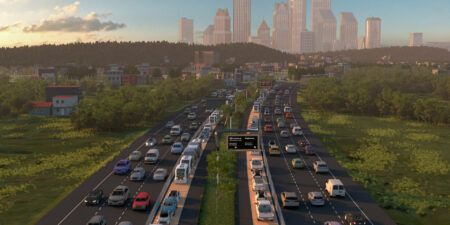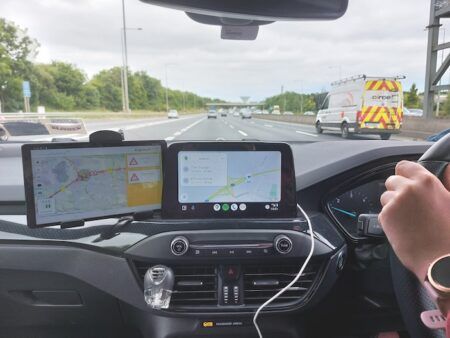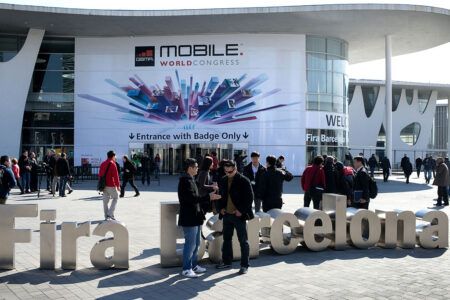Smart vehicle technology is being trialed on the streets of Edmonton, making it the first Canadian city to see cars ‘communicating’ with each other and with roadside infrastructure in an effort to improve road safety.
Launched in 2014, the three-year ACTIVE-AURORA project is being led by the University of Alberta’s (U of A) Center for Smart Transportation and the University of British Columbia (UBC) in Vancouver. The project consists of four testbeds and two laboratory test environments, with ACTIVE representing the Edmonton component, and AURORA representing the Vancouver component. ACTIVE-AURORA provides an open learning environment for researchers, industry and government groups to learn about, and test, connected vehicle applications and how they can improve transportation networks. From the testing of different applications and the data collected, this initiative will lead to improved transportation safety and efficiency for travelers, transport companies and other users of the Asia-Pacific Gateway and its corridors. The Gateway is a transportation network of seaports, airports, railways, roadways and border crossings that reaches across Western Canada, facilitating global supply chains between North America and Asia.
Using vehicle-to-vehicle (V2V) and vehicle-to-infrastructure (V2I) technologies, the connected vehicle (CV) applications currently being tested on Edmonton roads include: pedestrian alert; notification of unsafe speed approaching a curve; warning for following a vehicle too closely; notification of high-collision locations; notification of recommended driving speed for different traffic conditions; and notification of whether a vehicle can safely pass through a green light before it turns red. Information will only be collected from volunteer test vehicles during this pilot project. Three on-road ACTIVE (Alberta Cooperative Transportation Infrastructure and Vehicular Environment) testbed sites are in the greater Edmonton area, which will allow for testing on highway and arterial corridors.
The on-road Automotive testbed for Reconfigurable and Optimized Radio Access (AURORA) is located in Vancouver and will develop, test, demonstrate and commercialize innovations with particular emphasis on wireless communications for freight security and efficiency. The AURORA testbed will cover up to 6.2 miles (10km) along two- and four-lane roadways within and adjacent to the UBC campus, and will incorporate a range of new and emerging wireless technologies, such as Long Term Evolution (LTE), and 5.9GHz Dedicated Short Range Communication (DSRC); they will also permit a variety of radio and network configurations.
Different from testbed locations in the USA, ACTIVE-AURORA allows for applications to be designed and tested within the context of Alberta’s cold climate, where road salt and varying freeze/thaw cycles may impact traffic flow and transportation safety. By communicating critical information in real time, connected vehicles have the potential to not only save travel time, but also save lives by providing drivers with the information they need to be proactive. The testbeds will enhance both universities’ capacities to partner with government, industry and academic stakeholders to develop, test, demonstrate and commercialize innovations, with particular emphasis on data for active traffic management.




